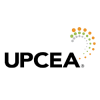2U is on the move. Founded in 2008 with one program at a single university, the online program manager (OPM) has since expanded on its own and through acquisition. Prior to announcing plans to buy boot camp and skills training provider Trilogy earlier this month, it ran 49 graduate programs and 90 short-form courses across 35 universities.
The $750 million deal added 32 university partners and a new kind of offering to its portfolio, bringing more detail and nuance to its growth and diversification plans. And they are no small plans — 2U, which made its name providing OPM services to elite institutions, is gunning to reach $1 billion in revenue within three years, up from $411.8 million in 2018.
During a call with analysts to discuss the Trilogy purchase, 2U CEO Chip Paucek plotted the addition onto what the company calls the "career curriculum continuum." Spanning free MOOCs to high-cost, high-production graduate degrees, the continuum shows the range of educational opportunities on the market. Some of those opportunities the company has already tapped into, such as professional certificates, and others, like bachelor's degrees, it hasn't. At least not yet.
Adding tech-skills training boot camps will help 2U extend its reach across that continuum, Paucek said in the acquisition's announcement. And analysts and other observers say the move is one example of how the OPM is looking wider across higher ed and deeper within its partners as colleges across the U.S. think more strategically about growing their footprint online.
"It's pretty clear that the number of elite, high-status institutions that will want to do online learning programs is limited," said Josh Kim, director of digital learning initiatives at Dartmouth College's Center for the Advancement of Learning. "The question is, how can 2U extend what they're doing to diversify?"
Doubling down on diversification
The move to add boot camps comes almost exactly two months after 2U announced plans to bring OPM Keypath Education into its fold through a strategic partnership. With Keypath, 2U can work with its existing partners on online programs that require a lower level of capital investment than its current offerings, as well as with new institutions.
"If they want to continue to grow, they're going to have to meet universities where they live," said Trace Urdan, managing director at education-focused investment bank and consulting firm Tyton Partners, which analyzes OPMs. "Ultimately it's going to mean a kind of diversification of a business model."
Not all institutions want (or need) the highly produced graduate degree programs on which 2U built its brand. "2U is a company that really knows the value of focus, (and) at the same time they recognize staying focused means they can't meet all of the needs that some of their customers would like them to meet," said Michael Feldstein, partner at consultancy MindWires and co-publisher of the e-Literate blog.
Despite the revenue from the Keypath programs likely being lower than a typical 2U program, they are poised to become a "solid revenue stream," Paucek said during the company's fiscal year 2018 earnings call in February. They also feed into the continuum mindset. "Having a broader relationship across each university … enables us to have more substantive conversations at the provost level about a strategic, university-wide approach to digital education," he said.
2U planted a flag at another point on its continuum with its 2017 acquisition of GetSmarter, which offers online short courses for working professionals in partnership with colleges. Although short courses are still a small part of 2U's business — generating $63.4 million in revenue in 2018 compared to $348.4 million from graduate degrees — the company sees them as an entry point into other products.
"As you see greater numbers of short courses, there is incredible opportunity in course bundles, which we're calling course stacks, which we think should lead directly into other parts of the continuum," Paucek said during the earnings call. (2U has allowed partner institutions to provide each other's courses.)
Trilogy's skills training programs also present new inroads with existing partners. Timed with the news of the acquisition, the University of North Carolina Kenan-Flagler Business School announced it is working with 2U to develop a set of classes and boot camp courses to teach technology skills needed in the digital economy. The arrangement will begin with adding materials from Trilogy's Python coding boot camps into an elective for MBA students and will expand to include undergraduate, master's and executive education programming in areas such as data analytics, digital leadership, coding, cybersecurity, and user experience and interface design.
"Technical content needs (to) exist across the entire vertical base," Paucek said in the analyst call discussing the acquisition.
What's next?
One motivator for diversification is that the geography-based competitive model 2U was founded on — providing best-in-class programs in a range of verticals with institutions that didn't necessarily compete — has its limits and could weaken as more colleges offer signature programs online.
Although research has shown online students tend to choose institutions located near where they live, the expansion of online education among elite schools could change that trend for some types of programs.
"Would a potential student or employee who was trying to get promoted rather have a certificate in, say, data analytics from a top school or an MBA from an excellent school but one that has a regional footprint?" Kim said. "I don't think we really know the answer to that question."
2U may find itself on both sides of that type of scenario. For example, the company is working with the University of Dayton's School of Law, a largely regional program, to support a mostly online Juris Doctor degree. The university is one of a handful of institutions to get permission from the American Bar Association to develop a hybrid program that would extend traditionally campus-based legal education online.
"If they want to continue to grow, they're going to have to meet universities where they live. Ultimately it's going to mean a kind of diversification of a business model."

Trace Urdan
Managing director, Tyton Partners
Meanwhile, with its latest acquisitions and partnerships, 2U is showing it can expand strategically, bringing into its portfolio companies with strengths different from its own.
"The skill set it takes to have a good boot camp offering with strong outcomes is not necessarily the same skill set that's required to call on elite universities," Urdan said, noting Trilogy's reputation for strong institutional partnerships. "That's the perfect kind of acquisition," he continued. "They both get a product offering they can bring to their existing partners and they also get a bunch of new partners that they can potentially bring OPM offerings to."
At the same time, 2U is batting back resistance to its approach, both from critics who contend the OPM business model is at-odds with that of a nonprofit university, as well as from potential partners who might desire more flexibility from a company that has fashioned itself as a one-stop-shop.
"This has always been a long game," Feldstein said. Using acquisitions to increase the types of programs in its portfolio can help lift 2U, he added, given that high-end, U.S.-based graduate degrees — its core product — "are not necessarily fast-growers."
For instance, non-degree options such as short courses and executive education require "a bit of a lower lift" from faculty and administrators and allow "more space for experimentation," Kim said. Such courses and programs can also be funnels into degree programs, helping institutions compete for quality students in an environment of high student acquisition costs.
Other opportunities for growth could be found in undergraduate education — the proverbial white whale of online learning — which is also on 2U's "continuum."
It wouldn't be the company's first attempt. In 2014, 2U shuttered its "Semester Online" pilot, citing challenges related to managing the consortium of elite institutions formed to share classes.
"I think it's almost inevitable based on how they're (2U) structuring themselves and the kinds of things they're saying about what they want to do," Urdan said.
A shifting market
Other big OPMs may follow 2U's example and differentiate.
"Everything is in play right now," Urdan said. "You're going to see more of the smaller OPMs get gobbled up by some of the bigger ones, but I also think you're going to see other kinds of companies get acquired. Boot camps are obvious."
Another OPM making similar moves is Zovio, which rebranded from Bridgepoint Education in early April as part of its ongoing shift from a college operator to a learning services provider. So far this year, the company has acquired a coding boot camp and a tutoring company, and it received IRS approval to spin off its Ashford University into a separate nonprofit. An OPM and skills-training provider could be in its crosshairs, too, Chief Operating Officer Greg Finkelstein told Education Dive earlier this month.
Urdan expects similar moves from other, more traditional educational services companies such as Wiley and Pearson. For its part, Wiley acquired OPM Learning House last fall.
"Would a potential student or employee who was trying to get promoted rather have a certificate in, say, data analytics from a top school or an MBA from an excellent school but one that has a regional footprint? I don't think we really know the answer to that question."

Josh Kim
Director of digital learning initiatives, Dartmouth College's Center for the Advancement of Learning
Such efforts to expand product offerings could mean companies like 2U shift from bundled services delivered through a revenue-share agreement to looser, a la carte fee-for-service arrangements, Urdan said.
"I don't see 2U ditching that (revenue-share) model," he said. "If you're trying to expand the market, there are universities that don't like that model, that prefer something that gives them the feeling of more flexibility and control. … We certainly see the market moving in that direction, and my own sense is that the future is one in which universities are going to have a range of choices."
To Feldstein, the decision to pick up Trilogy suggests 2U may be hunkering down in its position as a one-stop-shop for partners who seek that approach.
Still, he agrees more flexibility is likely across the OPM market. As online education proves out, more institutions may be willing to take on the risk of bringing in-house some of the capabilities needed to build and run those programs.
"The companies that are responding to that broadening diversity are all getting lumped under one product category name, which means everyone's making the mistake of assuming all those companies are going to continue to respond to the market in the same way," he said.





















